Benefits of fasting, ✅/❌’s during Ramadan & how to workout!
Share This
THE BENEFITS OF FASTING
Ramadan can be a challenging time for Muslims around the world or it can be a humbling time. I believe you are in control of your own unique experience. We all agree that fasting the month of Ramadan is an obligatory act of worship on every healthy, mature, and able Muslim man and woman. Don’t lose sight of the reason why we fast and take a look at the amazing benefits 😃 stated in my book Fuel Your Performance:
- Burning through carbs and utilizing fat for energy (ketones).
- Ketones promote positive changes in the structure of synapses important for learning, memory, concentration, and overall brain health.
- It gives our digestive system a break, leading to the ability to do a better job of conserving energy, restoring cells, and detoxing all vital organs.
- It’s a great tool for people who have poor glucose control and/or elevated inflammation.
- Fasting is a great way to practice self-control and teaches us how to manage true hunger cues.
- It can reduce weight and body fat percentage.
The Prophet peace and blessings be upon him said, “Every deed of the son of Adam is multiplied, a single deed as 10x the like of it up to 700x. Allah Almighty said, ‘Except for fasting, as it is for Me and I will reward it. He leaves his desires and his food for My sake.’”
Source: Ṣaḥīḥ al-Bukhārī 1795, Ṣaḥīḥ Muslim 1151
THE RIGHT WAY TO FAST
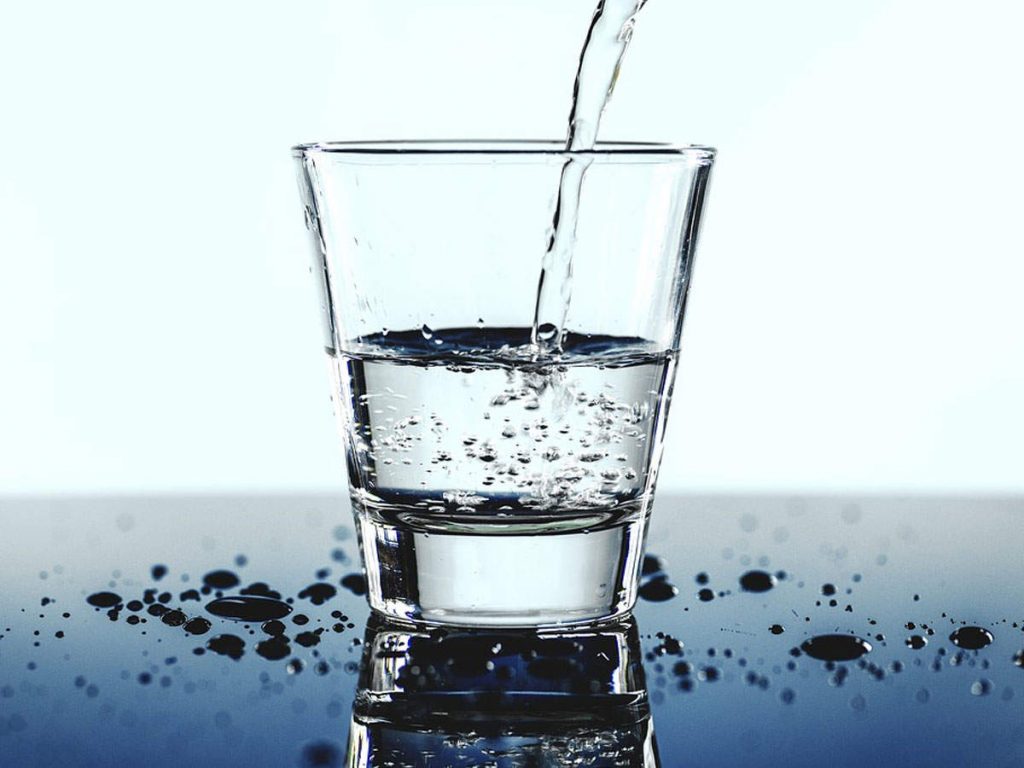
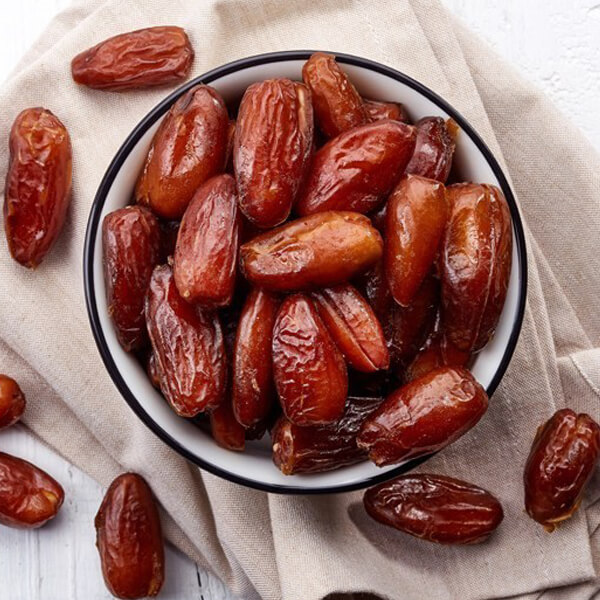
Prophet Muhammad (peace and blessings be upon him), is quoted as saying, “When one of you is fasting, he should break his fast with dates; but if he cannot get any, then (he should break his fast) with water, for water is purifying.” It’s important to follow our tradition during iftar and begin with a date and water.
- Dates contain several vitamins and minerals, in addition to fiber and powerful antioxidants. Our brains need glucose (sugar) to survive and when fasting it is crucial that we regain blood sugar balance. Dates provide plenty of sugar without spiking our levels too high. SubhanAllah
- Water is essential to life. It can dissolve and transport substances, begin chemical reactions, and provide minerals throughout our body, as well as help regulate our body temperature. Water is involved in flushing out toxins that are built up in our fat when we fast
After the above, salah. Salah is an excellent strategy to get the body moving and prepared for digestion.
Soup prior eases our way into the main course as it’s easily digestible.
Continue to eat healthy foods! Luckily, the Mediterranean diet provides us with many excellent options. It includes whole, minimally processed foods with varieties of legumes, grains, seeds, meats, vegetables, and fruits.
PORTIONS! Eat mindfully, use FYP’s Mindfulness Fuel Scan which includes eating slowly so you don’t overeat.
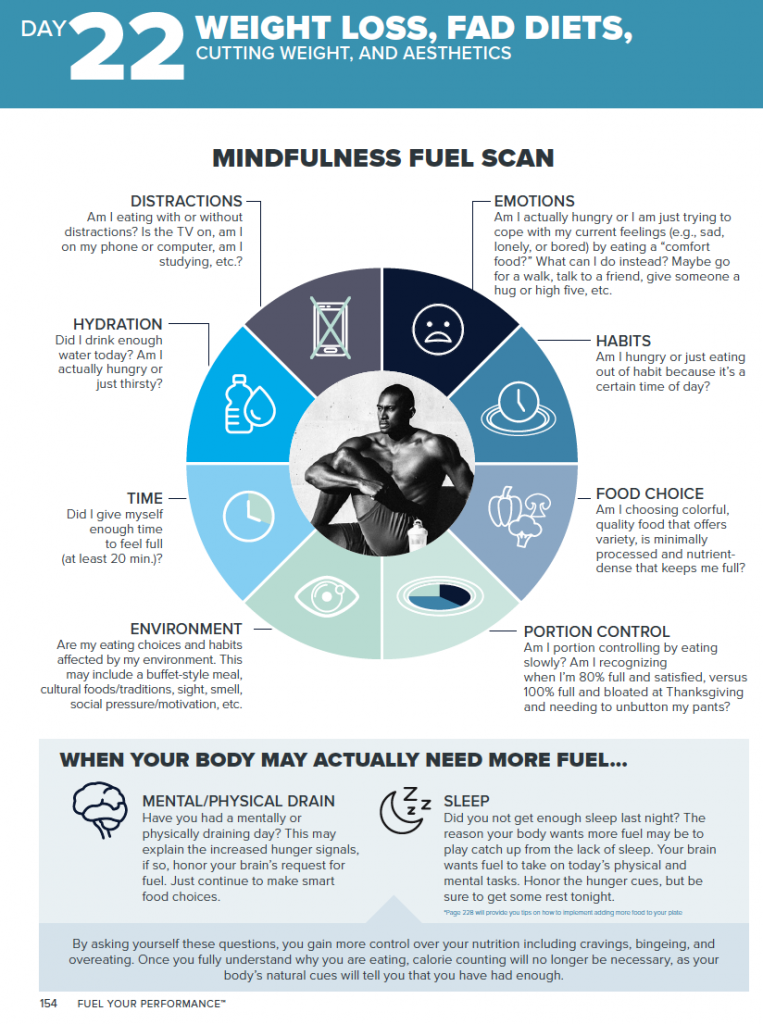
The environment tip from above is key during Ramadan.
- Typically, we have way too many options for iftar and want to eat everything in sight. Don’t let your 👀 be bigger than your appetite
The Messenger of Allah, peace, and blessings be upon him, said, “The son of Adam cannot fill a vessel worse than his stomach, as it is enough for him to take a few bites to straighten his back. If he cannot do it, then he may fill it with a third of his food, a third of his drink, and a third of his breath.” Quite simply our stomach should be split into thirds:
- 1/3 for food
- 1/3 for water
- 1/3 for air—subhanAllah!
A variety of foods will ensure optimal restoration of carbohydrates, fats, and proteins.
To prevent unwanted weight and muscle loss, eat a bit more protein! Protein can also aid unwanted weight gain as well. See an example plate from my book:
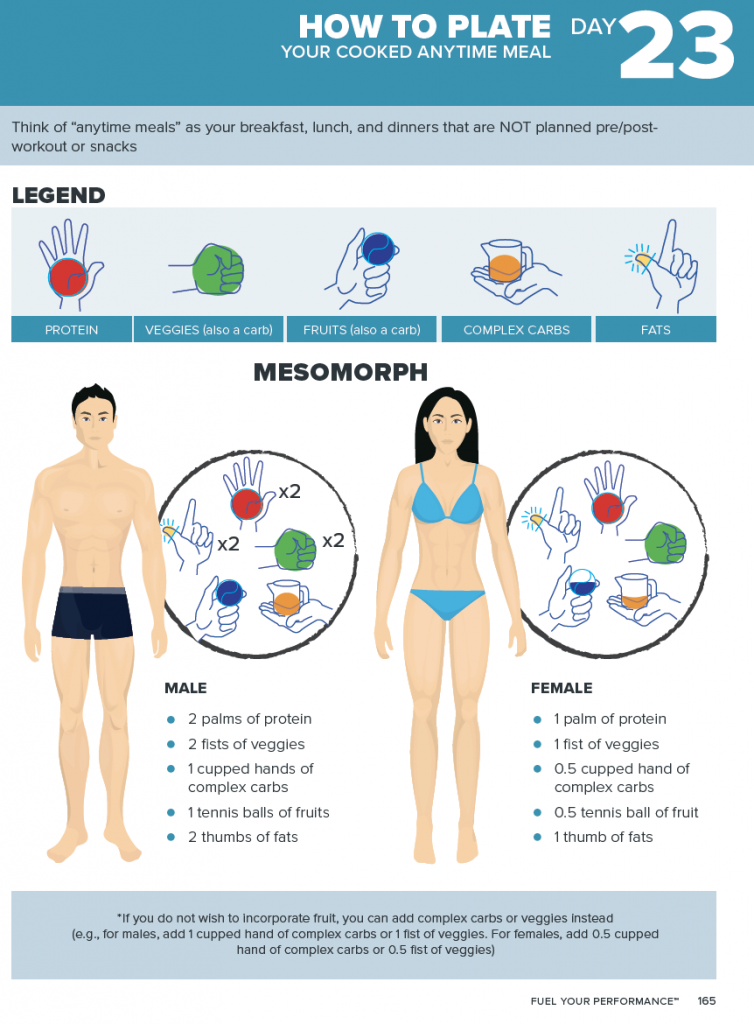
If you’re still hungry as you wind down, eat foods high in fat before bedtime: peanut butter, avocado, or even an egg with plenty of water!
For suhur, foods that will give you long-lasting energy are key. Eggs, apples, bananas, avocados, yogurt (non-fat greek or grass-fed yogurt), and vegetables. Try these recipes from FYP:
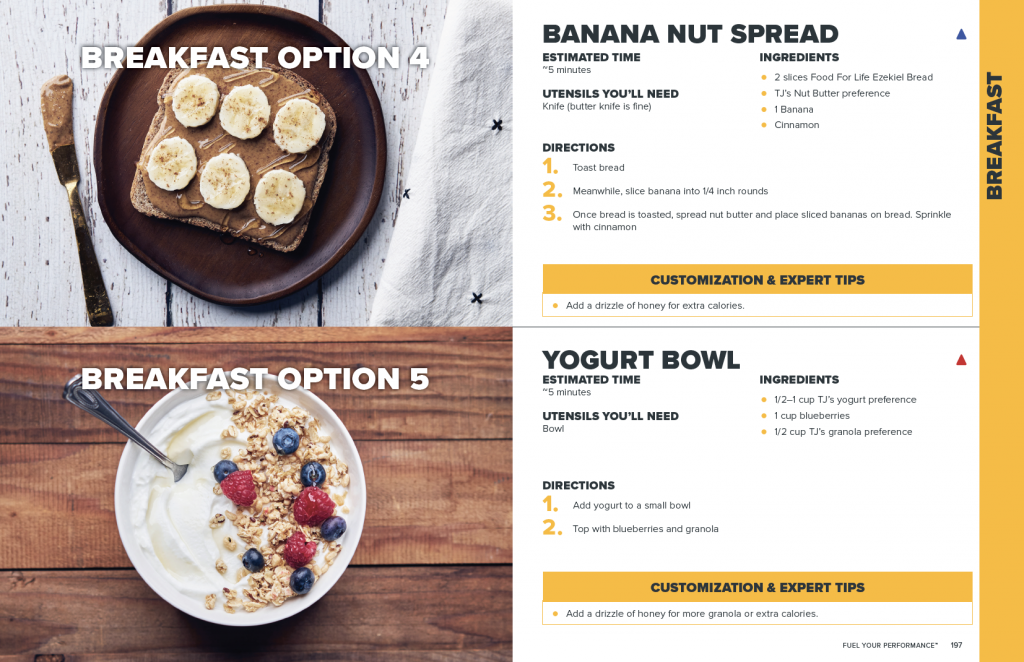
Take advantage of the extra time you now have during the day. Complete projects, or work you’ve been meaning to execute, read books, pray, etc. Don’t just sit around and watch tv for hours.
THE WRONG WAY TO FAST🙅🏽♂️
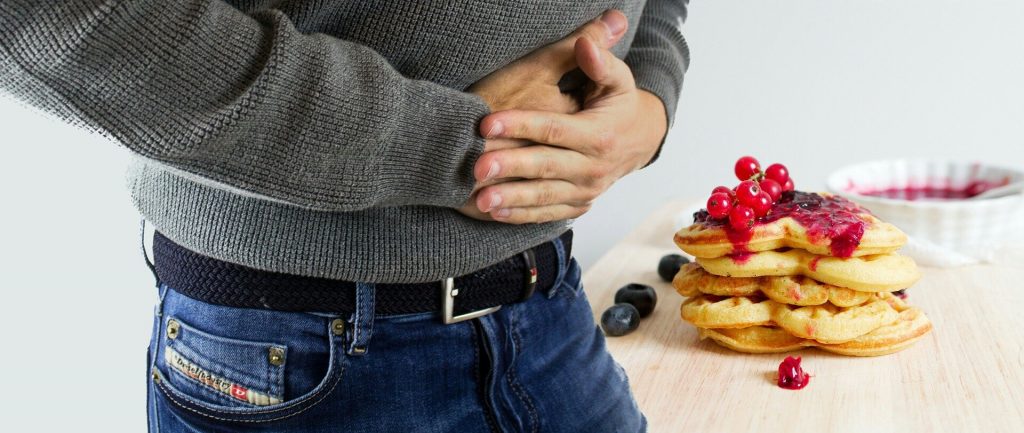
- Don’t throw out the eating “healthy” mentality and give yourself permission and rewards for fasting like:
- Eating lots of sweets
- Overeating
- And/or other unhealthy foods/habits
- Eating poorly nutrient-dense foods that are highly processed.
- This can be from fast food eateries like Domino’s, McDonald’s, KFC, etc.
- Plates that aren’t colorful
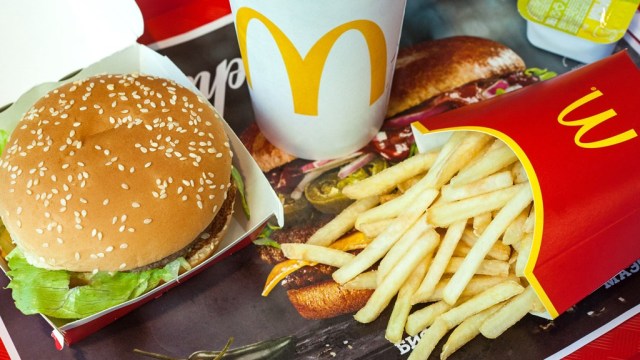
- Why it’s so important to eat healthily:
- When we fast, we breakdown our fat stores and use them for energy, this is also where our body stores toxins
- Our liver stores a good amount of nutrients and needs these nutrients (especially sulfur, glutathione, vitamins B, C, and E from fruits, vegetables and animal-based proteins) to detox the excess toxins we now have when fasting
- A bad diet deprives your liver of many nutrients to combat the excess toxins which can cause damage and inflammation
- With the short feeding window, pack your calories with healthy nutrients
- Not hydrating enough will further diminish the detox process as water helps flush out the toxins
- Avoid coffee and tea during meals as they can reduce your non-heme iron absorption up to 90%—drink them solo!
- Eating lots of sweets before bed, which disrupts your sleep cycle.
WORKING OUT DURING RAMADAN

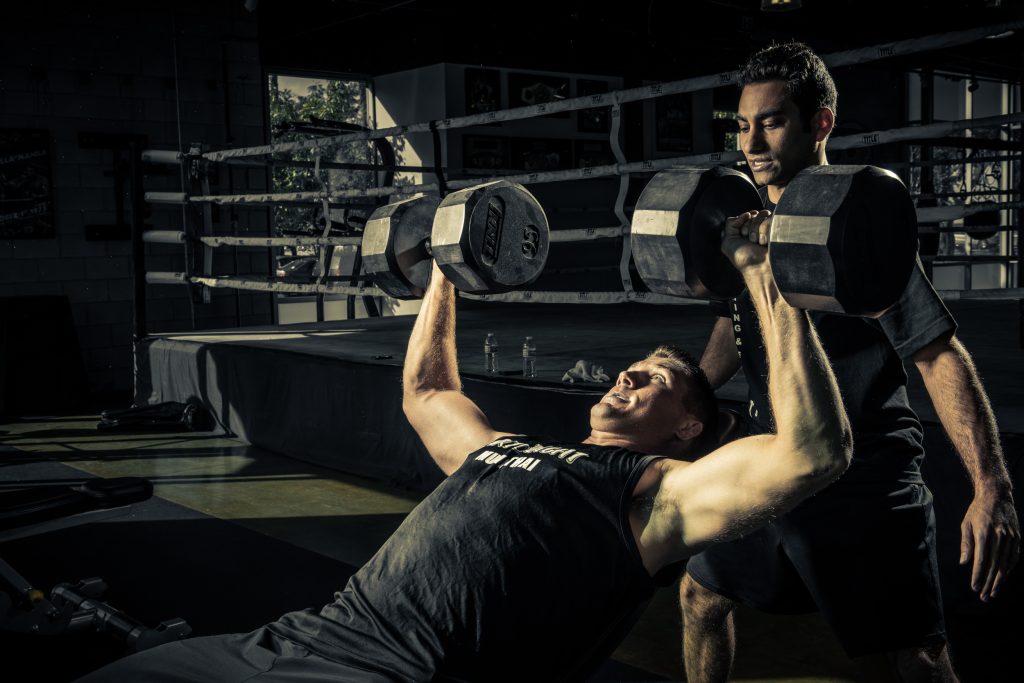
THE RIGHT WAY TO WORKOUT DURING RAMADAN 👌🏽
- Timing is key. For a good workout, you will need energy. Here are three preferred timing options:
- At night–this only works if you don’t have to wake up early the next day. During iftar HYDRATE and then only eat to about 40-50% full. Consume mainly carbs (vegetables, fruits, potatoes) and some fats (avocados, nuts, olive oil), then workout 30-45+ minutes later. Eat again after your workout, consuming more protein-rich foods with some carbs.
- In the morning–you will still have energy at this time so take advantage.
- After iftar and before your next meal/snack
- Type of workouts:
- At night–moderate or hard strength training, high-intensity cardio (sprints), or harder plyometric (jumping) exercises
- In the morning–moderate-intensity strength training (no heavy weights), light-intensity cardio (jog), or safe, low-rep plyometric (jumping) exercises
- After iftar and before your next meal/snack–light intensity, maybe go for a 1-hour walk
- Frequency and duration:
- Stick to what you’ve been doing the past month or so
- The 👆🏽 all depends on your workout and nutrition history, you may or may not be able to do more intense exercises.
THE WRONG WAY TO WORKOUT DURING RAMADAN 🙅🏽♂️

Timing:
❌Middle of the afternoon or right before iftar. You will be susceptible to injury from the lack of energy and hydration
❌Do NOT train hard when you don’t have energy
❌Do NOT train right after a large meal
Frequency and duration:
- This is NOT the time to make your workouts harder, more frequent, and longer. You simply do not have the calories to recover from the activities and you will be more susceptible to injury
I hope you enjoyed these tips and implement them this year for your most successful Ramadan yet inshAllah!
Learn more nutrition and lifestyle hacks with Fuel Your Performance™ DIGITAL OR PAPERBACK OUT NOW!

